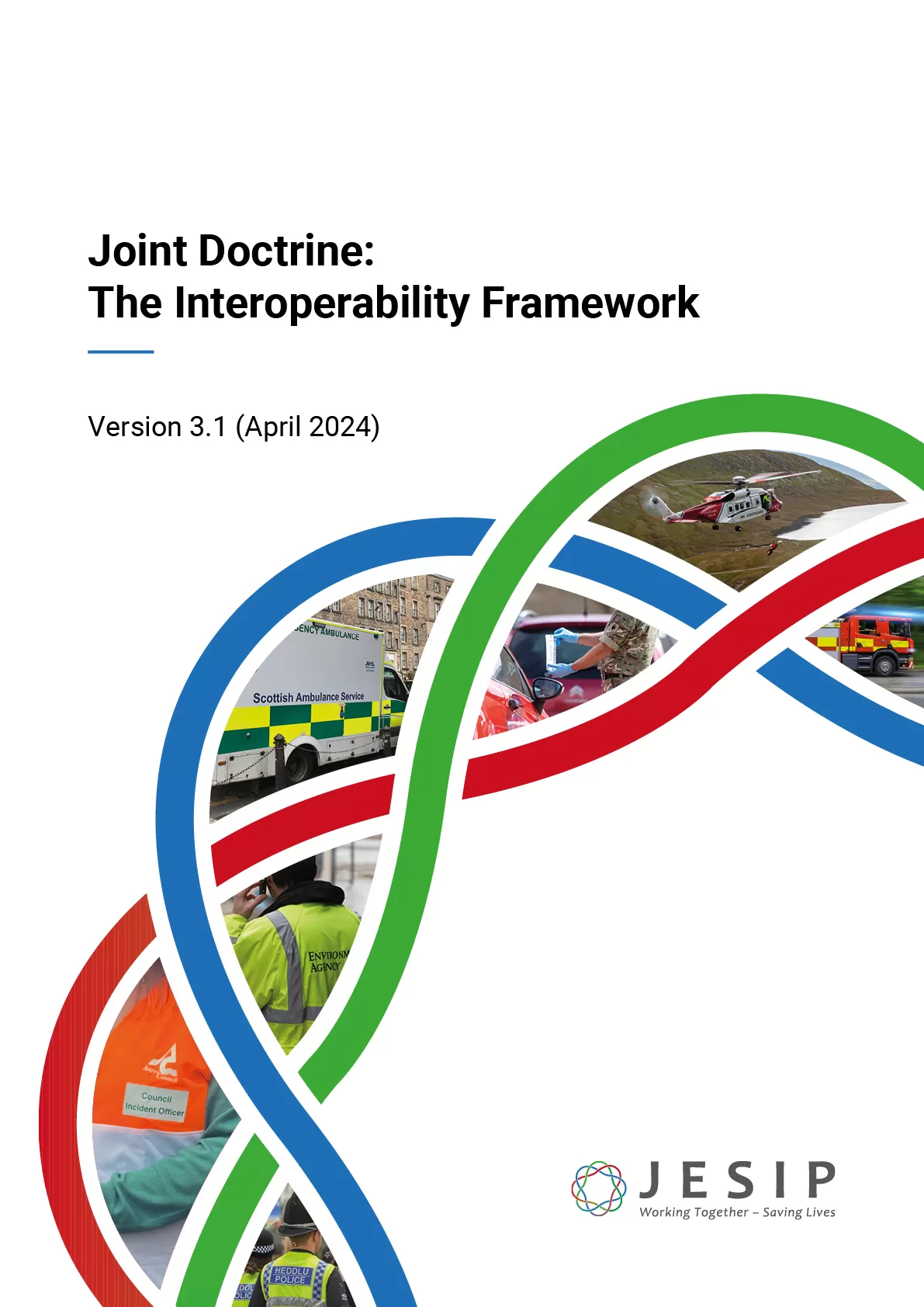Introduction to the Joint Doctrine
The Joint Doctrine – Edition Three continues to provide a common way of working together with saving life and reducing harm at its core.
The key components of the Joint Doctrine are:
- Principles for Joint Working – the principles we expect commanders to follow when planning a joint incident response
- M/ETHANE – a common method for passing incident information between services and their control rooms
- Joint Decision Model (JDM) – a common model used nationally to enable commanders to make effective decisions together
The Joint Doctrine Edition Three sets out what response staff and those that support them should do and how they should do it in a multi-agency working environment. Following JESIP will achieve the degree of interoperability that is essential to a successful joint response.
Whilst JESIP was initiated to ensure management of major incidents improved, the Joint Doctrine is scalable and the principles and models are equally relevant to day-to-day joint operations.
While aimed at ALL responder organisations across the UK, it is not possible to list every one of them here. To assist, and for the purposes of clarity, the following terms are used in the Joint Doctrine:
Responder – This relates to any individual, regardless of organisation, role or rank who is responding to or supporting the response to an incident (for example, police officer, A&E nurse, local authority liaison officer).
Responder organisation – This relates to any official organisation, agency or legal entity who are responding to, or supporting the response to an incident (for example, NHS ambulance service, a voluntary sector organisation or airport operator).
Commander – A person who has specific responsibilities and delegated authority to make decisions on behalf of their organisation in relation to the response to an incident. Some responder organisations may refer to this person as a manager or co-ordinator.
Local Resilience Forums – Multi-agency partnerships made up of local Category 1 and Category 2 responder organisations. Referred to as Local Resilience Forums (LRFs) in England and Wales, as Local Resilience Partnerships (LRPs) in Scotland, and as Emergency Preparedness Groups EPGs) in Northern Ireland.
To download a copy of the Joint Doctrine click here.
Related download
Download the Joint Doctrine
The Joint Doctrine – Edition 3.1 has now been published. It continues to provide a common way ...

